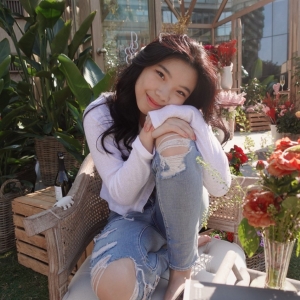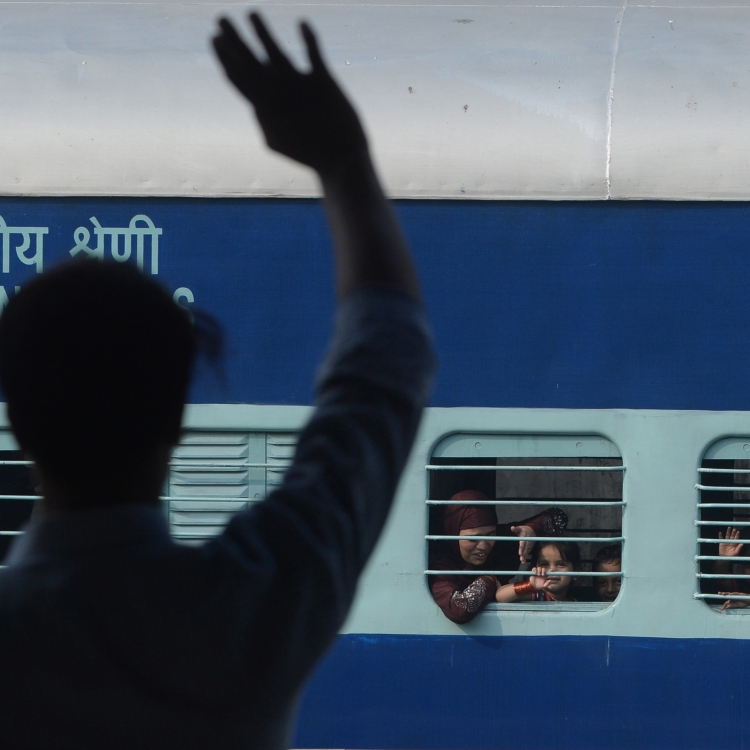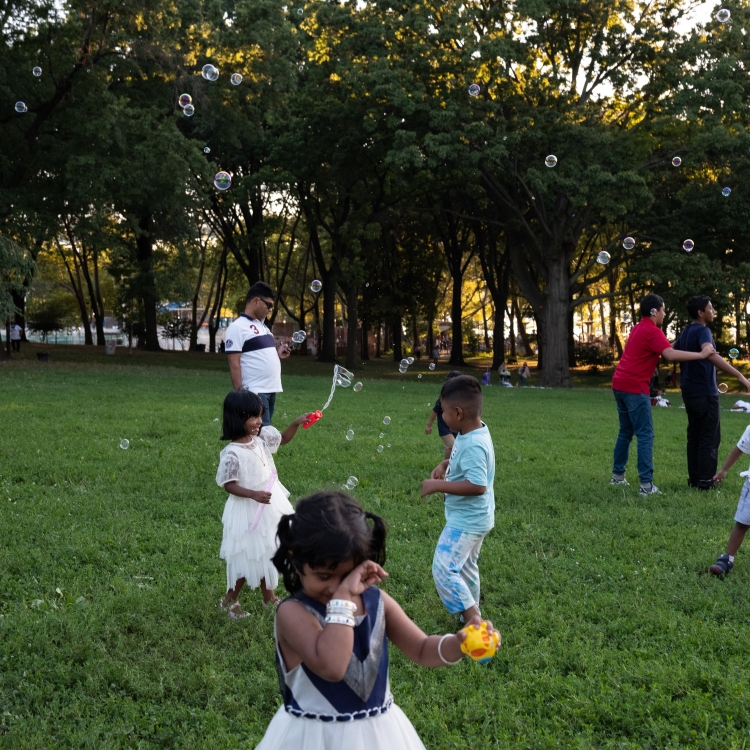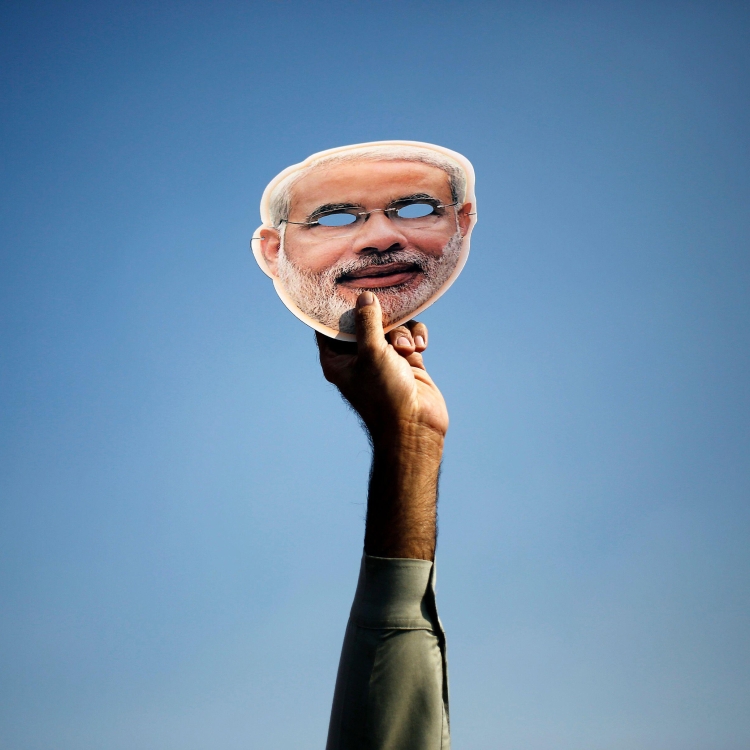magazine text block
Broadway has long been known as “The Great White Way” because of the glistening lights on the marquees that shine across New York’s historic Theatre District. These days, the name could also be taken as a reference to how New York’s theatre industry is dominated by predominantly white performers and creatives. A visibility report from the Asian American Performers Action Coalition’s notes that as of 2019, white actors appeared in 58.6% of roles across New York City stages, while Asian Americans occupied a mere 6.3%. While 80.5% of writers were white, only 4.4% were Asian American.
magazine text block
This seemed poised to change last October when “KPOP” opened its doors on Broadway. “KPOP” was the first musical to embrace Korean culture by incorporating original music and choreography inspired by the K-pop industry and featuring a bilingual book that fluidly transitioned between Korean and English. It also made history by ushering in 18 Asian Broadway debuts, welcoming Broadway’s first Asian female composer, Helen Park, and casting four actors who were real-life former Korean idols — Luna from f(x), Bohyung from Spica, Kevin Woo from U-KISS, and Min from Miss A.

Fictional K-pop girl group RTMIS (pronounced Artemis) made up of 5 members, including real-life K-pop stars Bohyung from Spica and Min from Miss A.
Matthew Murphy and Evan Zimmerman
magazine text block
That promise dissipated when the production made the shock announcement in December that it would be closing its doors after just two weeks, having run for only 44 previews and 17 official performances.
magazine text block
To me, a Chinese-Canadian who has seen over forty Broadway productions, “KPOP” was the first and only musical to break through “the Great White Way” and make a place for Asian American performers and creatives. In a field of Sondheims, “KPOP” went against the grain with music that celebrated modern Korean pop. In “KPOP,” Asians weren't objectified, fetishized, or pitiful; we were proud, accomplished, and human. What frightens me most about the show’s early closure is the thought that it could mark the end of more nuanced Asian representation at the pinnacle of commercial Broadway musical theater. It’s hard not to see the show’s financial struggles as a sign that Asian stories that don’t hew to certain types of narratives about our suffering are apparently not marketable to the larger American masses.
magazine quote block
magazine text block
“KPOP” follows three sets of artists under the fictional record label RBY Entertainment who are preparing for their big debut show in New York City. When soloist and seasoned superstar MwE, played by real-life K-pop star Luna, becomes fed up with her manager’s total control over her personal life and public image, she threatens to pull out of the company, putting the show and the futures of the girl group RTMIS and boy band F8 in jeopardy. Flashback sequences depict the difficult training and personal sacrifices K-pop stars endure to make it to the top.
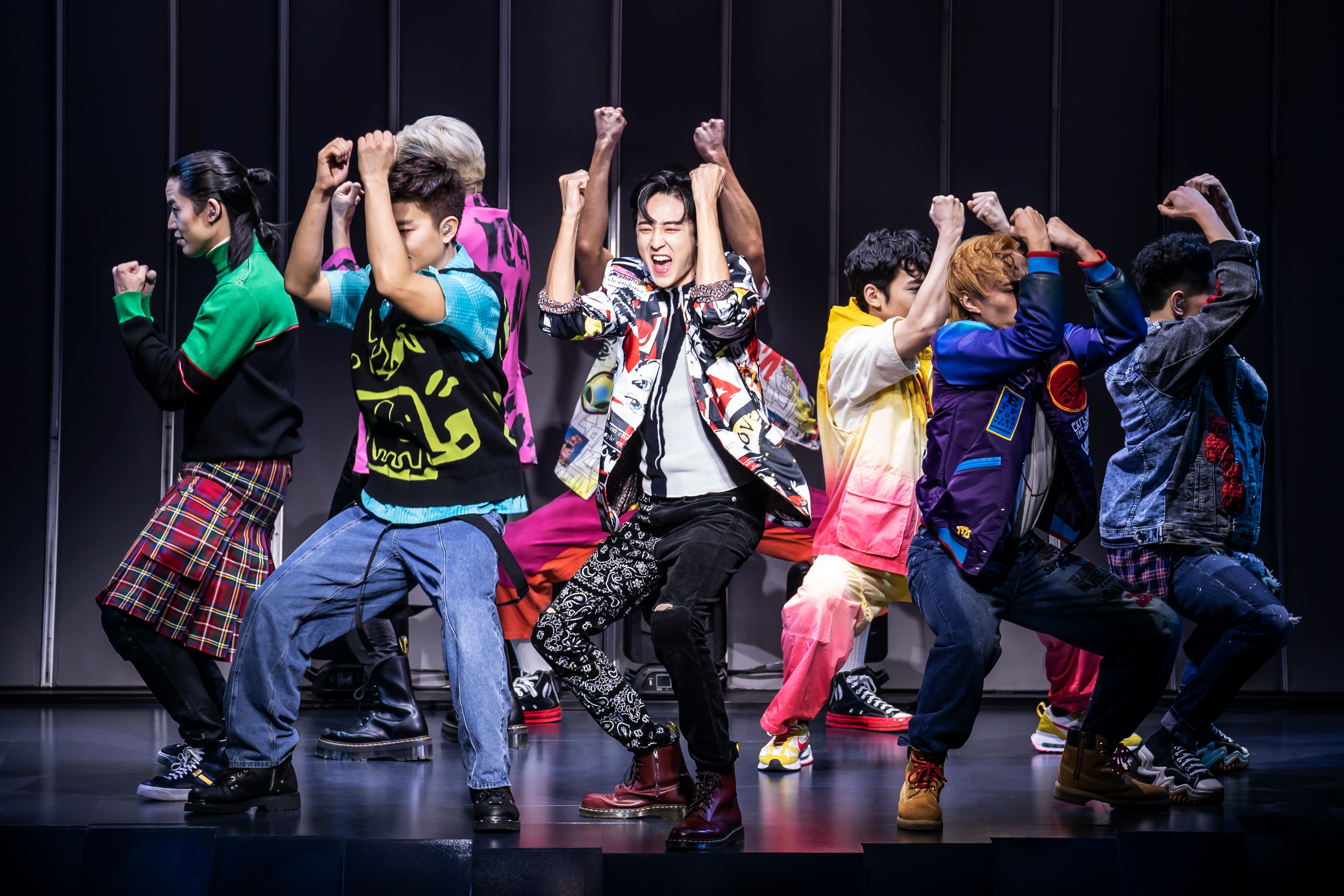
Fictional K-pop boy group F8 (pronounced fate), made up of 8 members and led by Kevin Woo from U-KISS (center).
Matthew Murphy and Evan Zimmerman
magazine text block
The backstage musical storyline stands out in contrast to past Broadway portrayals of the Asian experience in shows like “Miss Saigon” and “Allegiance.” In the former, Asian women are portrayed as helpless prostitutes during the Fall of Saigon and Asian men are characterized as cold and unfeeling. In the latter, the musical details George Takei’s personal experiences after the attack on Pearl Harbor. Both center on war, mass destruction, and the resulting intergenerational trauma that the Asian characters endure.
magazine text block
“KPOP” writer Jason Kim tried to take a different route. Instead of showing us Asian trauma painted against the backdrop of war, he wrote Asian characters who were multidimensional pop stars dealing with more relatable concerns like the price of fame, or overcoming one’s insecurities. Instead of depicting us as self-loathing individuals who want nothing more than to leave Asia for the “American Dream,” he portrayed us as people celebrated for embracing our mother tongue.
magazine text block
“A lot of ‘Miss Saigon’ is about the quote-un quote ‘burdens’ that Asian people carry and the kind of unique suffering that we endure. To me, that’s racist,” Kim told me. “If you were to believe just the literature that exists about Asian people in theatre, you’d think that we’d be walking around screaming about our ancestors every day. That’s not what we do.”
magazine text block
He added: “I think the expectation now is that if there is a narrative on stage that doesn’t portray suffering — ‘Asian Suffering’ with a capital A and capital S — people are like, ‘What is that?’ It is an act of defiance in a way and also a statement to just to have Asian bodies on stage that’s not in a war. To me, progress means that we get to write whatever stories we want.”
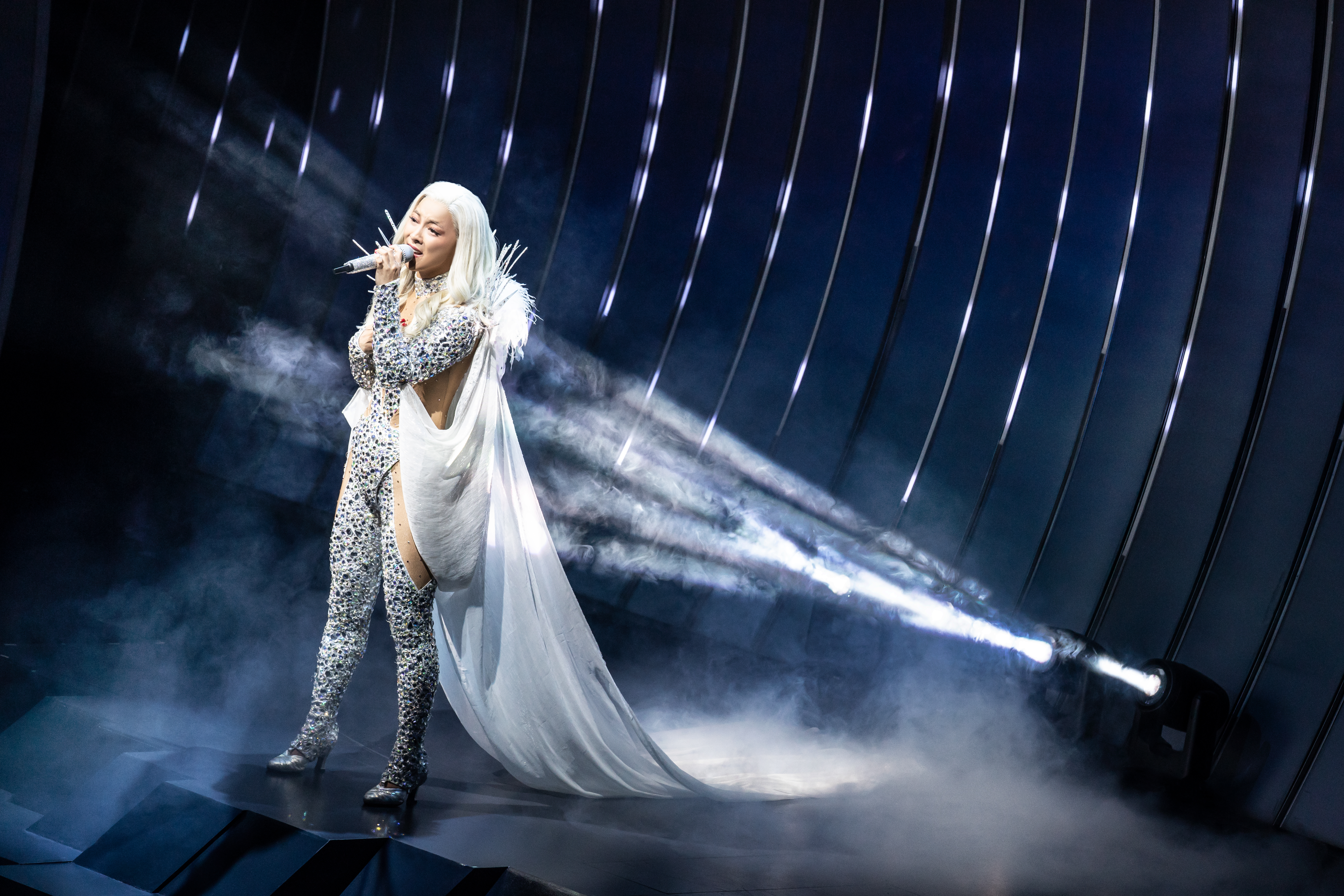
'KPOP' saw Luna from f(x) in her Broadway debut, playing the starring role of the fictional K-pop soloist MwE (pronounced mwee). The musical follows MwE's journey from K-pop trainee to K-pop star and depicts the difficult training and personal sacrifices to make it to the top.
Matthew Murphy and Evan Zimmerman
magazine text block
In the wake of the #StopAsianHate movement, "KPOP” felt to me like the ultimate sign that the Asian American community was stronger than ever and ready to present itself as a force to be reckoned with. I saw the show five times, and every time it kicked off with its joyously diverting opening number “This is My Korea,” I reveled in the chorus and its unapologetically Asian proclamations. When the entire company would sing “It’s my story and I’m writing it/In my own style, like if you like it,” all the days when I refused to take the subway out of fear of the spike in anti-Asian hate crimes would melt into a distant memory.
magazine text block
It evoked a sense of pride that the cast members also reveled in. Understudy and swing Patrick Park told me about how rare it is in the industry for Asian creatives to have the chance to inhabit roles where they could be so unapologetically themselves. “I love that a white ensemble will never be able to sing ‘This is my Korea’ or ‘Blast Off.’ They’re ours, and they were created to be ours,” he said.
magazine quote block
magazine text block
Associate director Seonjae Kim explained that a confluence of factors led to the early closure of the show. There were early shows that were canceled due to Covid infections among the performers, failed marketing, and an unenthusiastic, much-criticized review in the New York Times, which the producers rebutted with a statement decrying its “implicit racism and cultural insensitivity.”
magazine text block
“The systems in place need to catch up with the art that’s being made,” said Kim, the associate director. “‘KPOP’ was breaking history in so many ways, but it was marketed in a traditional way, and that did not get us the audience we could have and should have had.” In other words, the show’s marketing failed to mimic the essence that real K-pop groups use.
magazine text block
It’s a terrible shame to me that despite the public outcries about the lack of diversity in the creative arts, when a show like “KPOP” presents itself, it feels like no one is there to support it until it is far too late. In a time when the news about subway attacks and the constant wave of anti-Asian sentiment sweeping across the country can feel like an unwavering source of discouragement and paranoia, we don’t need further reminders of the pain that we experience on a daily basis exploited on a commercial stage. We need a celebration that shows us that, against all odds, we’re here to stay.


